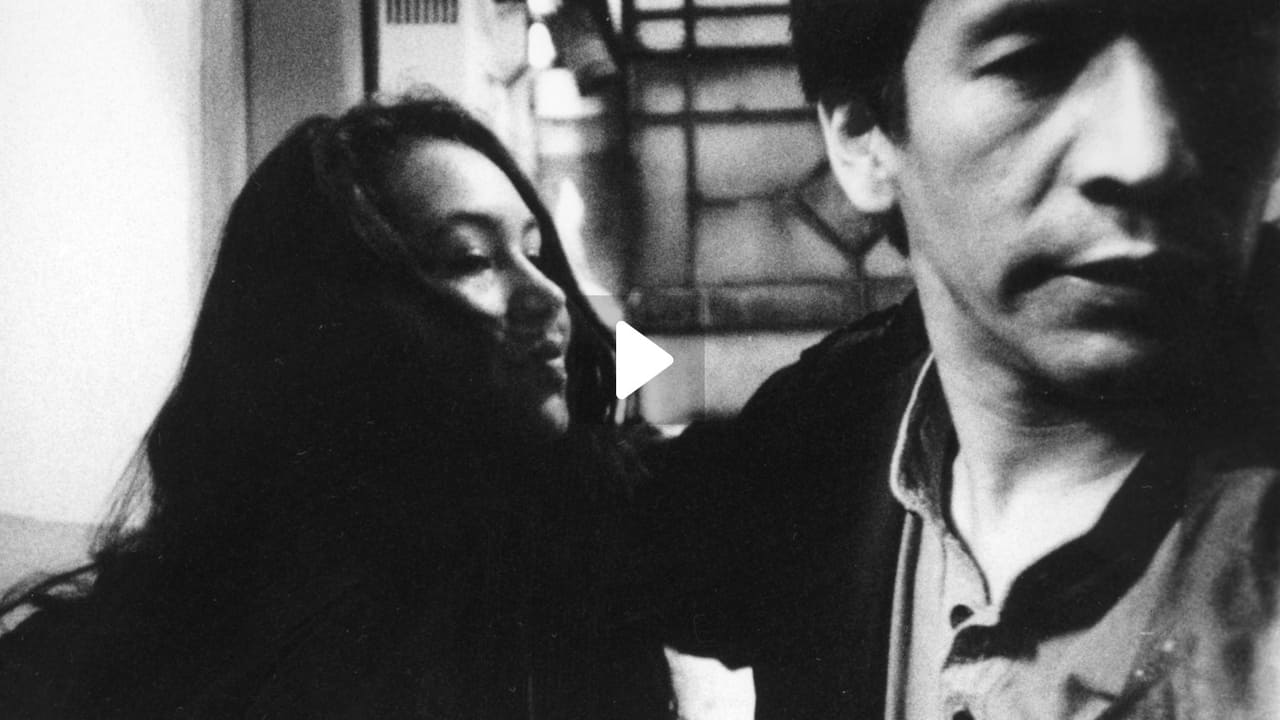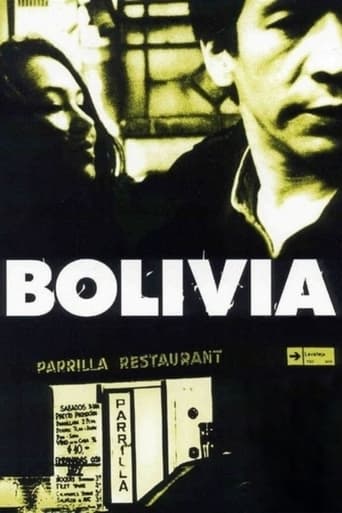ShangLuda
Admirable film.
ThedevilChoose
When a movie has you begging for it to end not even half way through it's pure crap. We've all seen this movie and this characters millions of times, nothing new in it. Don't waste your time.
Brennan Camacho
Mostly, the movie is committed to the value of a good time.
Beulah Bram
A film of deceptively outspoken contemporary relevance, this is cinema at its most alert, alarming and alive.
domonkos49
In the words of the immortal Johnny Mac, "You cannot be serious!" This snoozer is the most lackluster thing I've had the misfortune of subjecting myself to in a good while. You know, you read these reviews (the ones from the Voice and the Times) and you get conned into thinking there's something there. It must be the Tabula Rasa thing; they project all manner of hidden meaning onto these blank canvasses (oh, it's all so very symbolic). Sure it is. Less is not always more. Minimalism in this case means minimal plot, acting chops and scriptwriting. Want to make big splash at Cannes? Say nothing and the emperor's new clothes syndrome will take over from there. This thing is as tedious as "Uncle Boonme who's ancestors were as turgid and dull as he was", another Cannes con.
dfwforeignbuff
Bolivia (2001) This is the first feature-length film from director Israel Adrian Caetano. It was an Argentinean & Dutch Production. Filmed in black & white & on a low budget the film was shot 3 days a week over a period of three years. Kind of a neo-realism slice of life film the mostly plot-free film is confined to a café-bar in the lower-middle class Buenos Aires suburb of Villa Crespo, with few trips outside. It tells the story of Freddy (Freddy Flores), a Bolivian with a gentle disposition, who, after Americans burn down the coca fields where he is employed, loses his job. With little work opportunities in Bolivia, he leaves his wife & three daughters & travels to Argentina to search for employment as an undocumented worker. He hopes to make money & later return to his family. He lands a job as a grill cook in a seedy Villa Crespo café where the owner (Enrique Liporace) is happy to skirt Argentinean immigrant laws in order to secure cheap labor. It is in this café that Freddy meets the characters who affect his life: Rosa (Rosa Sanchez), a waitress of Paraguayan/Argentine descent, & an outsider by virtue of her mixed heritage; Hector (Hector Anglada), a traveling salesman from the province of Córdoba who's gay; a Porteno taxi driver (Oscar Bertea), & one of the driver's buddies. Freddy also has to deal with various Argentine café patrons who view all Paraguayans & Bolivians with disdain due to their ethnicity. The film gives us a realistic portrayal of racism immigrant labor & prejudices in Argentina. Cateano used professional & non professional actors. Freddy Flores was a local non professional. Other reviewers state this film is for art film students only. I disagree. All interested in foreign film & film in South America & Argentina will like this film. It very realistic & I enjoyed it. This short 75 minute film about poverty, intolerance, violence, & despair in contemporary Argentina is powerful & I recommend it. This is a universal story. 3 or 4 stars.
miguelfeyfer
There are movies that shows you how hard can life be for people considered different or out of place. We know that Adrian Caetano is quite an expert in such films. "Bolivia" is not an exception. Really good, makes you think about facts that seems quite normal in our countries.In Argentina the Bolivian or Paraguayan people are generally unwanted immigrants, as Argentinians are unwanted in other places like USA, Italy or Spain. This movie shows clearly how can individual tragedies be part of social discrimination. Considered as "Nuevo Cine Argentino", Caetano's filmography should be watched carefully, being a good director that tells simple but deep stories.
edithjeroen
In a small bar/restaurant, at a corner in Buenos Aires Argentina, a Bolivian immigrant finds a job as a cook. His experiences and those of the locals in the bar are used by the director to tell us a story about life of working class people in nowaday Argentina. The film is almost entirely shot in the bar. The scenery, discussions in the bar, and development of the drama have a Jarmusch like quality.The film won the critics-price in the International Film Festival Rotterdam. Highly recommended!

